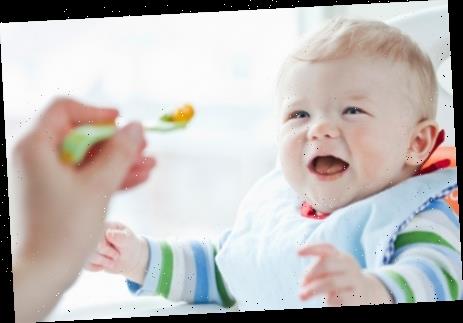Some parents get crazy over every little thing their kids eat, and reasonably so. Now, with a new study that reveals how toxic baby foods really are, they have something to show for their mealtime stringencies.
According to a new investigation published by Healthy Babies Bright Futures, 95% of the 168 baby foods that were tested from major US manufacturers contained some form of metal. Almost all of them contained lead, 75 percent contained cadmium, 73 percent contained arsenic, and 32 percent contained mercury. One in four foods contained all metals listed.
The American Academy of Pediatrics has made it clear from nearly a decade ago that baby foods contain contaminants and that a diverse diet would prevent any legitimate damage. But this study dove deep into how these baby brands are affecting kids’ IQs from birth to 24 months. “All four metals are linked to IQ loss from exposures early in life. The scientific evidence spans decades and continues to build: at least 23 studies published in the past seven years confirm these four heavy metals’ impacts to a child’s healthy development,” HBBF reports.
They found that fruit juices, rice-based products, and sweet potatoes are actually the worst culprits of them all. For example, sweet potatoes, which retain more metal than most fruits, are naturally contaminated with heavy metals found in soil and water, airborne, fertilizer, and industrial operations. Homemade purees, in this case, won’t prevent your baby from consuming metal. “Even in the trace amounts found in food, these contaminants can alter the developing brain and erode a child’s IQ.” Overall, parents should avoid rice, juice, and orange root vegetables until the FDA does more to establish and finalize health-protective standards for heavy metals found in baby food.
Even with these new findings, how concerned should parents really be?
According to Toddler Dietitian Kacie Barnes, it’s normal to find traces of heavy metals in ALL foods that are grown, not just orange root vegetables. “Heavy metals are present in our environment. So unless we created all our food in a lab, there’s going to be small traces of heavy metals,” she explains about not needing to avoid small traces of metal entirely. “The concern over heavy metals in baby food is not as serious as the news makes it out to be. Heavy metals like lead and arsenic are found in the soil and it’s impossible to completely avoid them.”
https://www.instagram.com/p/B3wsebugmqP/
Still, she explains that we don’t know how much metal is deemed unsafe for a baby to consume. “No one is ever going to do an experiment on a baby to find out just how much of a heavy metal their system can handle before experiencing health problems, because it’s cruel!” Overall, though, Barnes agrees that rice cereal should not be offered to babies since it has a higher concentration of arsenic. “Newer research supports offering babies a variety of foods from the start like soft veggies and fruits, even meat and beans,” she concludes.
Moral of the story: Diversify your baby’s foods and take parenting studies with a grain of salt!
Source: Read Full Article

